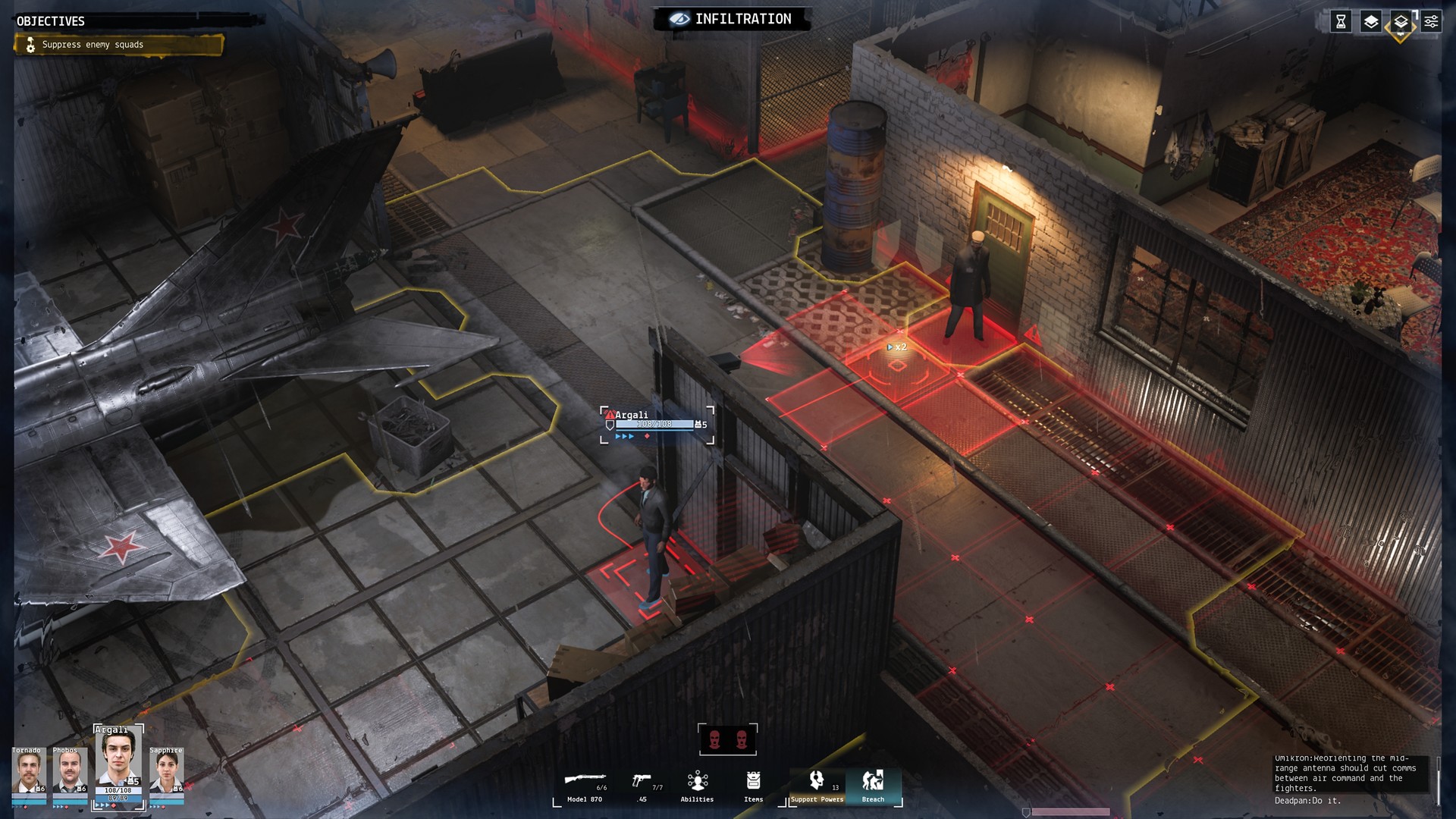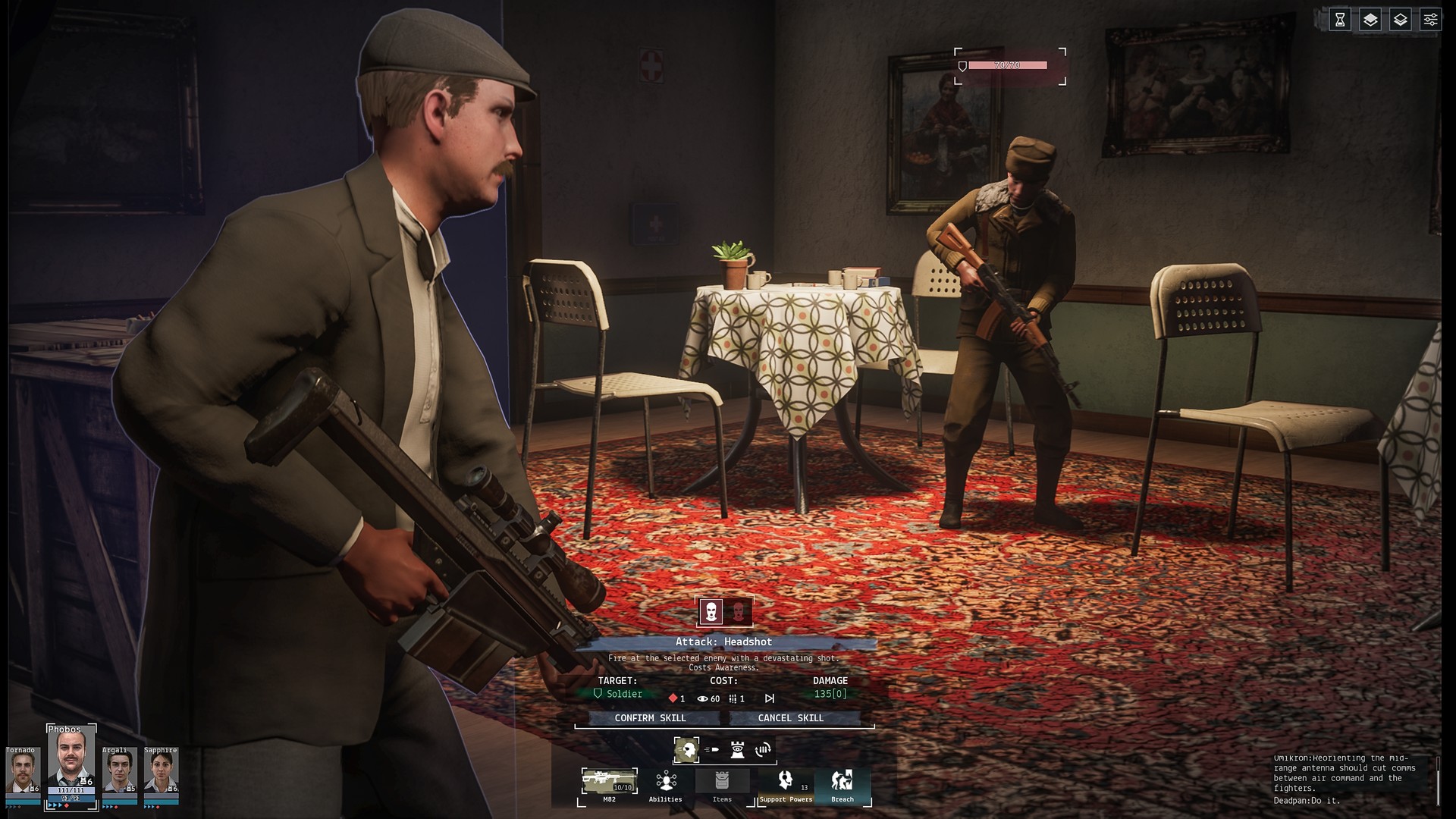Phantom Doctrine Review
This Review Will Self Destruct If Improperly Stored
CreativeForge Games and Good Shepherd Entertainment’s Phantom Doctrine is a game that looks to build on the revival of XCOM, taking its structure of squad-based missions played out in an ongoing campaign against nefarious forces and applying it to an alternate-history late-Cold War setting. The game’s first ten or so hours provide a lot of positives, particularly with its addictive gameplay loop, most of which hold true throughout the life of a full campaign. However, the requirement for multiple playthroughs to get the full ending and general recycling of elements prevent it from becoming too memorable after the fact.
Players start off by choosing an initial faction — CIA or KGB — and creating their own custom agent, with a third faction unlocked after the first playthrough is completed, though most of the differences between factions come in the first few chapters, which set up the global conspiracy behind everything. Placed in charge of their own cell, players send their agents out on missions and investigations across the globe, upgrade their HQ, hire new agents, link together intelligence reports, and so forth, looking to uncover and defeat a hidden foe attempting to control the world from the shadows.
The overall story itself isn’t anything particularly special, and ends up being a pretty generic espionage-cum-global-conspiracy tale. However, it does enough to keep the missions ticking along at a good pace. There are only a limited number of characters who have any real interaction with the plot, and most of their involvement comes through radio communications or brief chats before, during, or after story missions. The antagonists get very little screen time and little to characterise them other than the fact that they are part of a hidden organisation and their goals run into conflict with those of the player. The ending of the first campaign is a bit of a damp squib, and generally just serves to further point out the fact that the game requires at least one thirty-or-so-hour replay for the full tale to be revealed.

There is a helpful indicator showing when agents know that wandering into an area will alert the enemy.
Instead, Phantom Doctrine’s primary appeal comes from its gameplay loop of running through missions to find intelligence or otherwise stop enemies who can negatively effect the player’s cell, before returning to HQ to upgrade the HQ and agents, utilise the newly-found intelligence, and assign agents to investigate suspicious activity. Missions are controlled from an isometric view as players give orders to a group of two to six agents, only going into third-person for specific actions and when firing a weapon. Missions are turn-based, with each agent receiving two to three movement points and one action point. There are lots of ways to use these points: sneaking around to find and deactivate security cameras, stealthily taking out opposing agents or civilians that might blow player’s cover, and of course firing the agent’s weapon. However, without a silencer this last option will immediately alert everyone to trouble and cause full-on combat to break out.
The game is very much geared towards being as stealthy as possible, as firefights will quickly result in casualties unless players get their tactics spot on. One positive to the combat system is that luck plays a much smaller part than the vast majority of strategy titles out there. There is no such thing as a miss — though combatants may dodge or reduce the damage received depending on the targeted character’s current awareness, cover, and armour — and line-of-sight restrictions are incredibly relaxed. The other side to this is that any mistakes are very swiftly punished, though a regular auto-save means those not playing on Ironman Mode can easily reload and try something different. The combat is generally less enjoyable than the stealth sections of missions, as it’s so easy for things to go wrong, but this in turn helps serve to provide more tension to stealth. There is a great sense of satisfaction in pulling off a mission with the enemies completely unaware of what has just happened.
One of the more enjoyable parts of the game is linking pieces of intelligence together on a detective-style traditional cork board as players look to connect code words to solve cases. These reports are found in multiple ways, such as on missions, through informants, or by tasking agents with analysing data signals at HQ. There are some entertaining pieces to read through, but on the whole they are fairly generic and players will find plenty of reused ones — albeit with different code words and redacted sections — before too long. This loop of finding intelligence pieces and then tying them all together is highly enjoyable and provides a nice sense of progress as the boards are steadily filled with paper and string.
There are a lot of systems in the game, particularly when it comes to training agents or using the special MK Ultra facility to interrogate enemies, brainwash compromised agents, or plant potential sleeper agents. It can be very easy to ignore some of these elements, with the game giving neither any time to explaining their use nor any practical reasons to use them outside of simply selecting them to advance the plot, and doing so won’t hinder the player in any meaningful way for the most part, especially on the Easy difficulty. Crafting and fairly substantial equipment systems are also present, but again don’t need too much focus, especially as the limited cash flow won’t let players do many things at any one time anyway. There are also some neat choose-your-own-adventure options that can crop up where players get a choice of actions to deal with suspicious agent behaviour or requests, especially during a particular section of the campaign when hunting for a mole. These chooses can have wide ranging effects, perhaps resulting in the death or defection of the agent, but also potentially earning that agent’s unbreakable loyalty.
There are a view complaints to be made about the lack of variety in environments. Although the game features enough variety in objectives and placement of enemies to keep things from being too stale, there are a limited number of location designs so players will revisit the same environments many times, and they all have the same architecture no matter where in the world the mission takes place. With all of the missions occurring at night, there is very little sense of occasion to many missions, albeit the story missions are better at feeling specifically designed. The voice acting is decent enough, but there is only a limited selection of voices and lines for regular agents, which results in a lot of repetition during missions. The music and sound effect are also not a particular weakness, but don’t stand out in any way.
Phantom Doctrine may not quite fully follow through on its early promise, but the game is still a lot of fun and will readily supply lots of hours of enjoyment. The difficulty options are such that newcomers looking to get into the style of game should find themselves welcome and given a bit of license to experiment without being punished too harshly, while those with experience will be able to find a challenge. Anyone with even just a passing interest in either an espionage-focused or XCOM-style RPG will find Phantom Doctrine well worth checking out.


Enjoyable and addictive gameplay loop
Rewarding feeling for executing stealth
Stringing clues together is fun
Multiple playthrough dynamic is a bit off-putting
Various systems can be too easily ignored
Things get recycled too often







Recent Comments